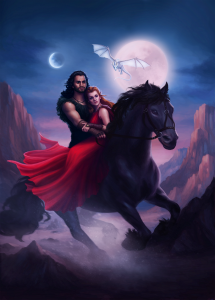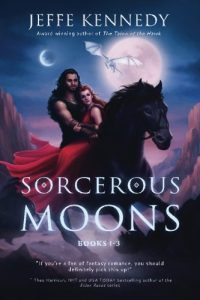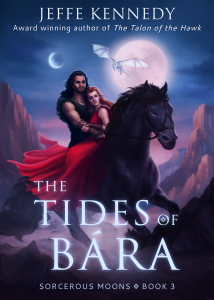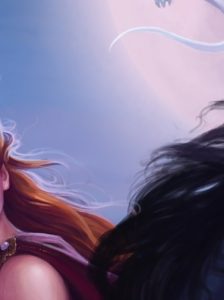 First off, some exciting news!! For all of you who have loved Louisa Gallie’s amazing cover for THE TIDES OF BÁRA (book #3 in my Sorcerous Moons fantasy romance series), you can now get *stuff* with the image from Society 6!!! I know I’m going to be doing some shopping!!
First off, some exciting news!! For all of you who have loved Louisa Gallie’s amazing cover for THE TIDES OF BÁRA (book #3 in my Sorcerous Moons fantasy romance series), you can now get *stuff* with the image from Society 6!!! I know I’m going to be doing some shopping!!
So… I’ve been brewing a bit of a rant. But it has nothing to do with politics!
I read this book that I really hated. This was particularly disappointing because it was very well written – at least the beginning was. I had high hopes for it to be a top pick. However, the bulk of the book didn’t live up to the truly stellar beginning (which happens) nor did I think it lived up to the considerable hype (which certainly happens a lot). None of this, however, is why I hated it.
I hated it because the author went to extremes to make the story brutally heartbreaking.
Now, I’m going to caveat that, while I am a big fan of happy endings, this is not what bothered me. I’m okay with a tragic ending. I went into this book expecting a tragic – even brutally heartbreaking – ending, because I’d been warned. Even if I hadn’t hear people talking about how it broke their hearts, I would have known at the beginning because it’s clearly telegraphed. There’s even a kind of warning quote in the frontispiece that essentially says that the story will be painful because it’s the truth.
(I’m going to some lengths here not to identify the book, because that’s not my purpose here.)
So, the logic of the story is this: the ending is over-the-top tragic, with a profound betrayal. There’s insult added to injury. And then it’s excused in a way by this warning, by saying “Oh yes, this is really painful because it’s true.”
I call complete and utter bullshit on this.
Truth has nothing to do with pain.
And that ending is painful, not because it illuminates some universal truth, but because the author WANTED it to be brutally painful. It was so contrived to be heartbreaking that it made me truly angry. In romance we often talk about the unearned happy ending – when the story fails to convince the reader that the couple have a real chance at happiness. I found this tragic ending to be unearned. In Romeo and Juliet, the ending is believably tragic because of the cascade of disasters and errors. In this book… I didn’t believe the main character would go to the lengths they did. The explanation that’s tossed about is that the person is a sociopath.
Well… okay. But if the only explanation to justify that result is to describe the person as not being a normal human being, then this is hardly a truth. It’s a monstrous characterization. And the pain is nothing inherent or true – it’s simply plastered on to elicit this emotional reaction.
In brewing this rant, I planned to address the relevance of the idea that the truth hurts – so I looked up the origin of the quote. I fully expected it to be from the Bible or Shakespeare.
Not so much!
In fact, PEOPLE, THIS QUOTE DOESN’T EXIST!
At first I couldn’t believe it, so I got a couple of research-fiend friends (Thank you Kelly Robson and Erin Hartshorn!) to look, too, and they couldn’t find it either. Erin found a French version (il n’y a que la vérité qui blesse – it’s only the truth that wounds) that’s attributed as a proverb, but it’s not from the biblical Proverbs. We couldn’t find “The truth hurts” anywhere except in internet memes.
Which – do I have to say this? – don’t count as citable quotations or as universal truths.
So, let’s all get over this idea that the truth is painful, okay? You want to explore pain and betrayal, sociopathic behavior, power and the way it corrupts – sure, do that! I’m interested in those themes, too, which is in part why I wanted to read this book. But I take offense at the idea of presenting a painful story and justifying doing so as “true” to something.
Pain is no more true than pleasure. Sorrow no more true than joy.
And a tragic ending isn’t more valuable than a happy one.
Enough with this already
 The first three Sorcerous Moons books are now out in print!
The first three Sorcerous Moons books are now out in print! At last, the much-anticipated next installment in the
At last, the much-anticipated next installment in the  First off, some exciting news!! For all of you who have loved Louisa Gallie’s amazing cover for THE TIDES OF BÁRA (book #3 in my
First off, some exciting news!! For all of you who have loved Louisa Gallie’s amazing cover for THE TIDES OF BÁRA (book #3 in my  Guess what???
Guess what???